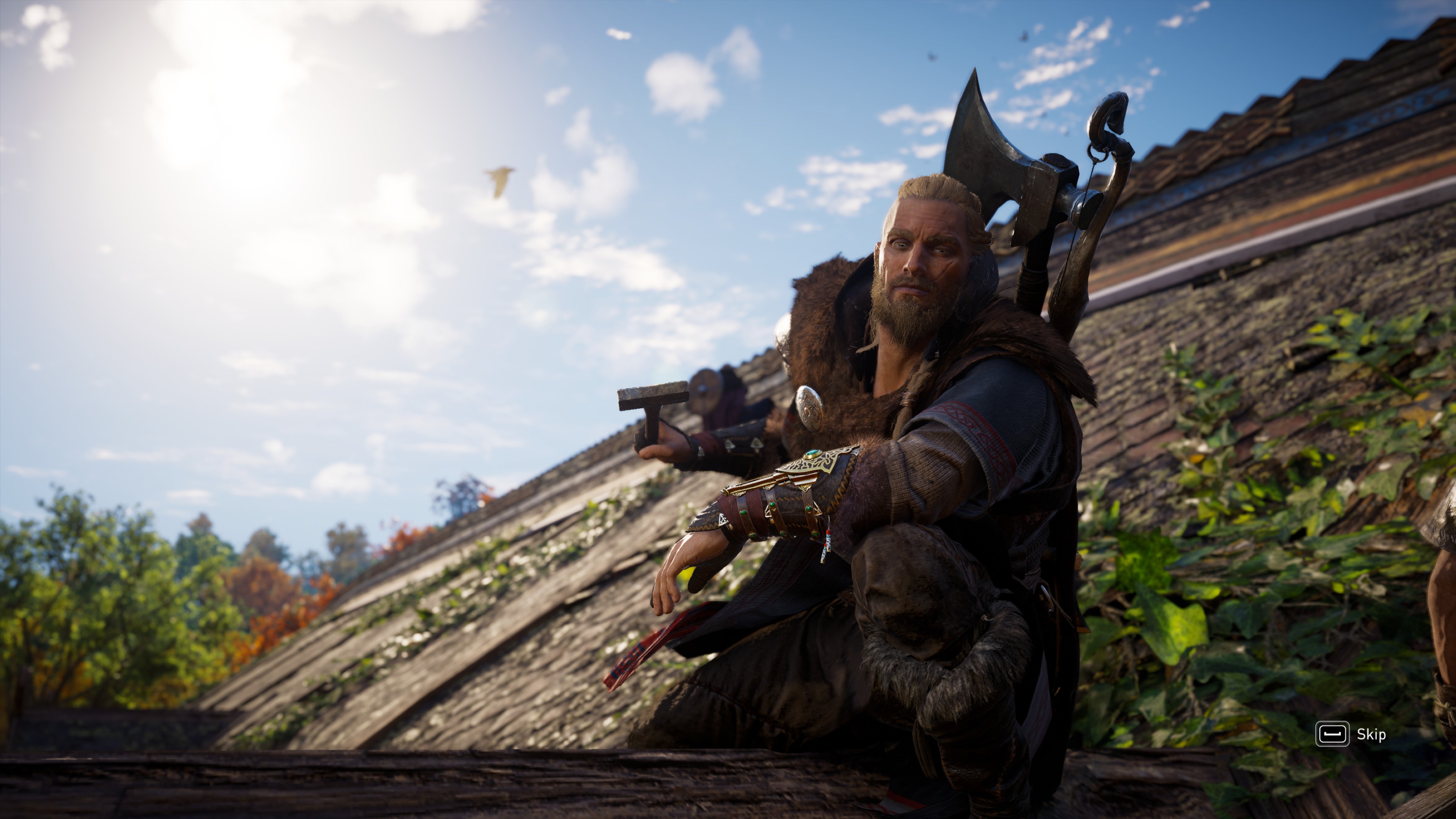Price: £49.99
Developer: Ubisoft
Publisher: Ubisoft
Platform: PC
Though it may have become as inevitable as Call of Duty and the cycles of the Moon, at least Assassin’s Creed still has some ambition. Recreating a sizeable chunk of the historical world every couple of years is no mean feat, and since the launch of Origins in 2017, the series has become ever grander, more nuanced, and more enjoyable. Assassin’s Creed Valhalla continues this trend, delivering what is in many ways the best Assassin’s Creed to date. It’s still not *quite* up there with your Witcher 3s and your Red Dead Redemptions, but the difference is increasingly one of inches rather than yards.
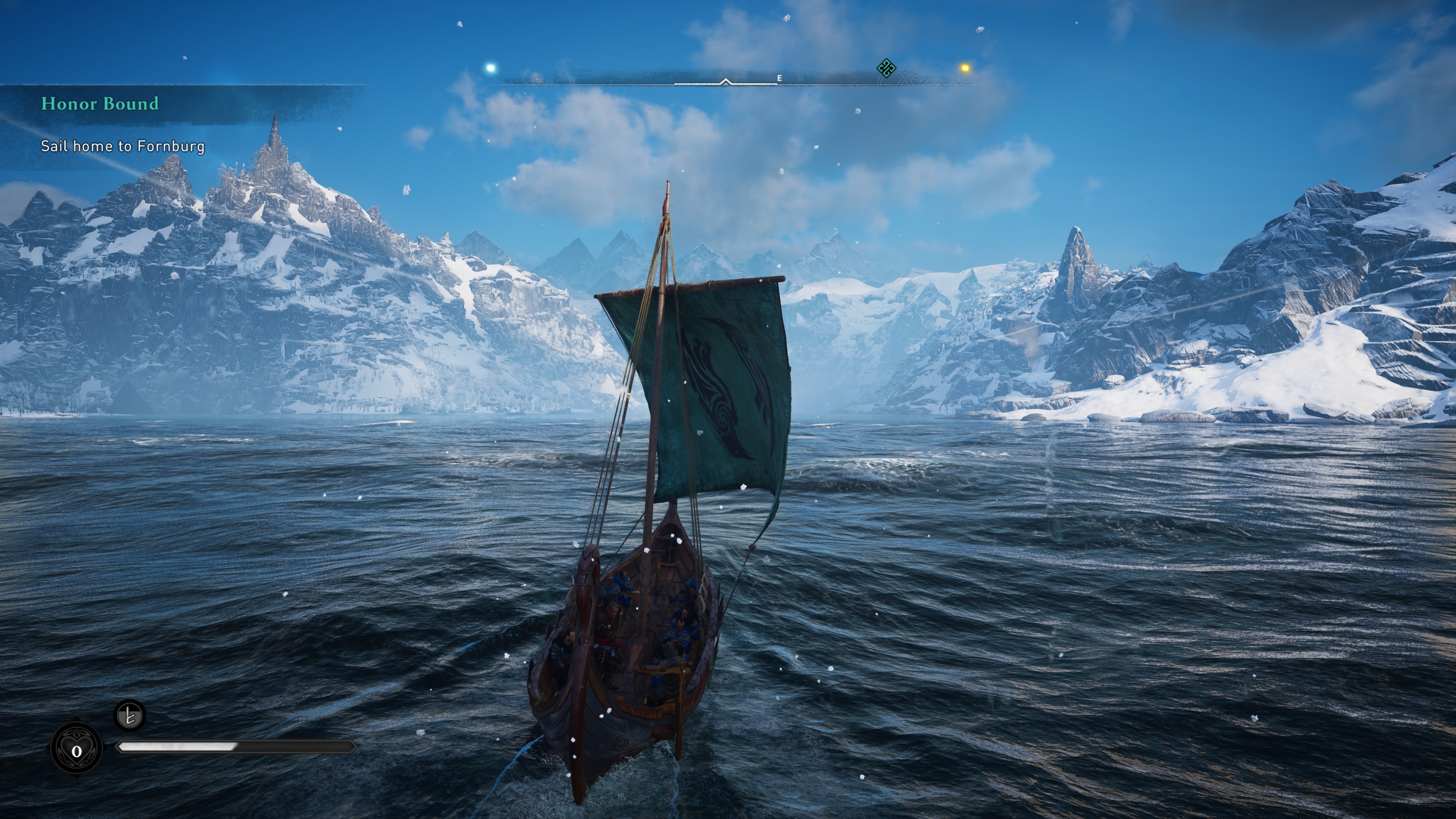
After the Classical capers of Origins and Odyssey, Valhalla fast-forwards history a thousand years or so to the 8th Century AD. Players assume the role of Eivor “Wolf-Kissed”, a Viking from Norway who has dedicated their whole life to seeking revenge after their clan is massacred at the hands of a rival warchief. Valhalla begins in earnest as Eivor’s quest for revenge starts to heat up.
Although I ended up loving Valhalla, it does not get off to the best start. The game’s “introduction” lasts between four and seven hours depending on how fastidious you are in exploring the gorgeously rendered chunk of Norway that serves as the game’s opening area. What initially appears to be the main arc of the story – Eivor’s quest for justice – is actually wrapped up pretty quickly, and the narrative then segues onto a different track to do with political tension between various Norse kings. It’s something of a false start, failing to build up the conflict in a way that makes the resolution satisfying.
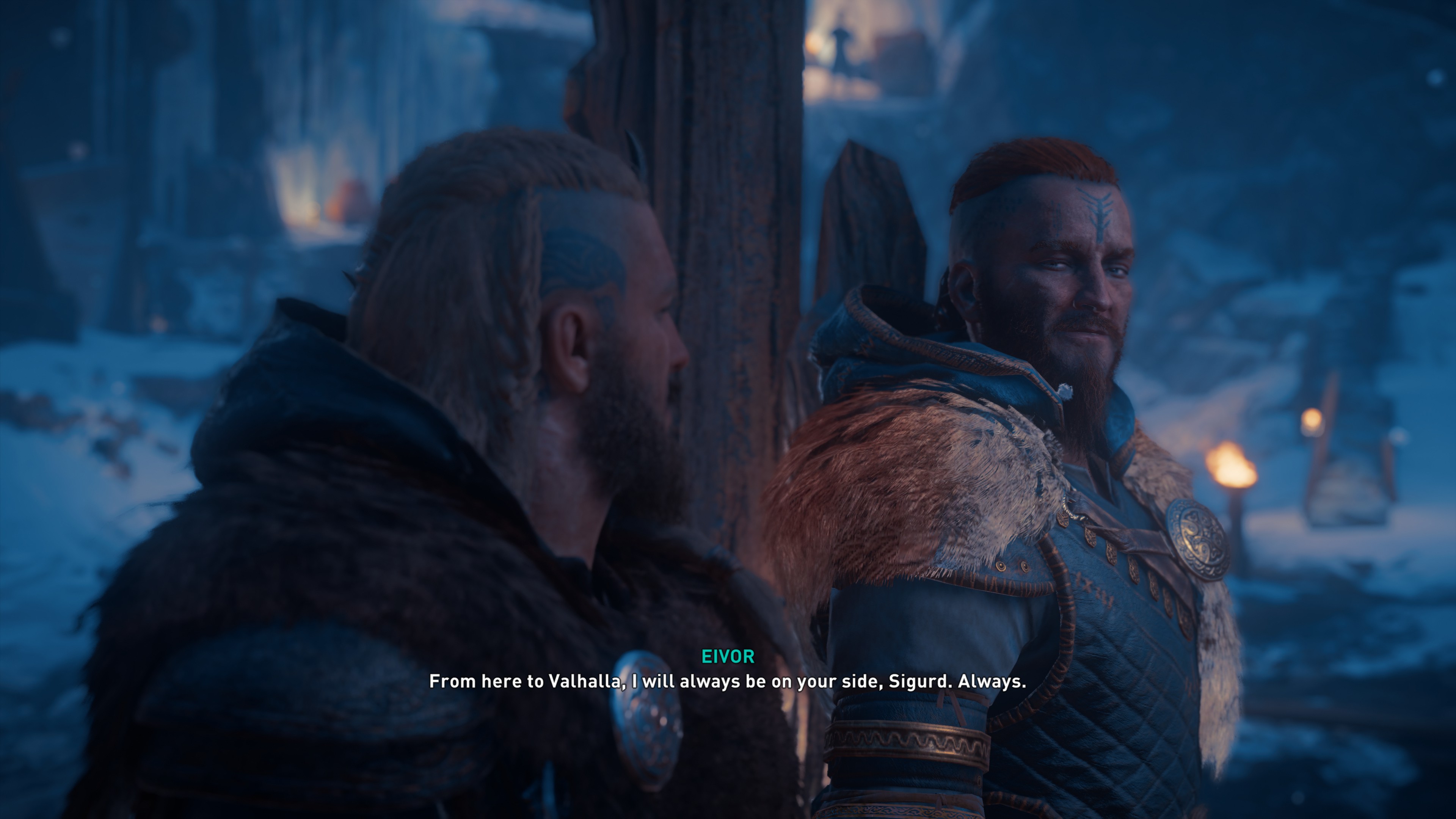
What doesn’t help is that several of AC’s core systems seem to have regressed in the two years between Odyssey and Valhalla. For example, your friendly avian scout – a raven rather than an eagle this time – isn’t as useful at scouting and identifying enemies. Also, while ships still play a major role in Valhalla (you are a Viking after all), actual naval combat has been removed.
The most worrisome weakness is the combat itself, which initially is about as satisfying as eating a raw egg. Valhalla’s combat tries to blend the system from AC: Origins with the block-and-parry system that made Sekiro: Shadows Die Twice so damned thrilling. At first though, it appears to be a failure. The controls feel floaty and imprecise, while your basic attacks lack a sense of heft and impact, feeling like you’re hitting the air near your enemies rather than actually striking them. The intro isn’t all bad. Exploring the icy fjords and snowy mountain slopes of Rygjafylke is enchanting, but overall, it feels like a step back from Odyssey rather than forward.
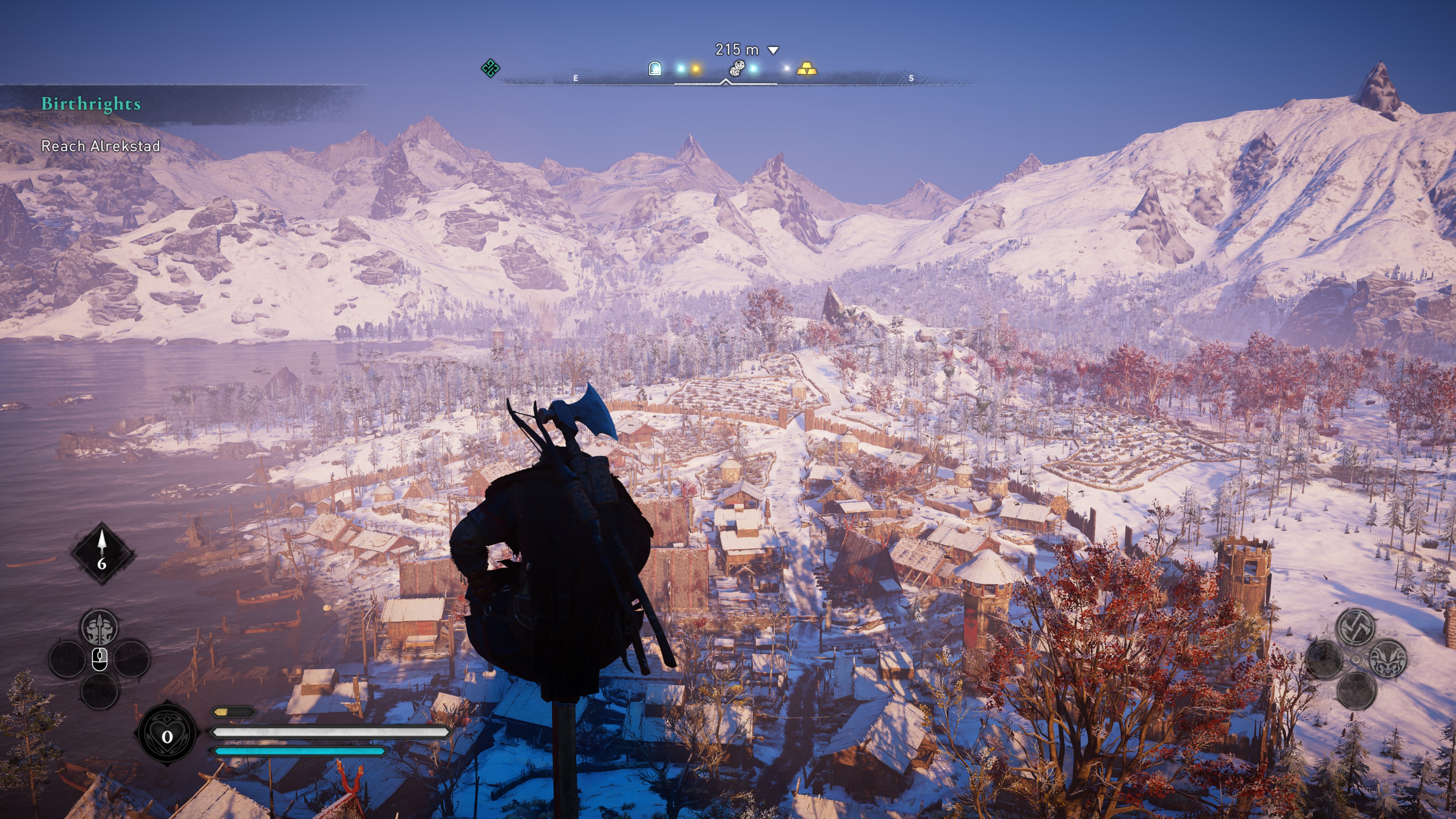
All this changes when you arrive in England. For reasons that I won’t spoil, Eivor and his adoptive brother Sigurd ultimately decide that Norway is no longer for them, subsequently setting out to conquer themselves a chunk of the British Isles. Sailing across the North Sea, they venture upriver just south of Ledecestrescire, where they begin to build a settlement.
The settlement is the crux of Assassin’s Creed Valhalla. Binding the game together, it fixes one of the key problems with previous AssCreed games – a feeling of listlessness to your adventures. This was particularly the case with Odyssey, which had an “And then and then and then” structure to its adventuring (although to be fair, this was somewhat the point). Nonetheless, Odyssey’s story often felt like it didn’t know where it was going, only that it had to go to certain places so that the player could explore them.
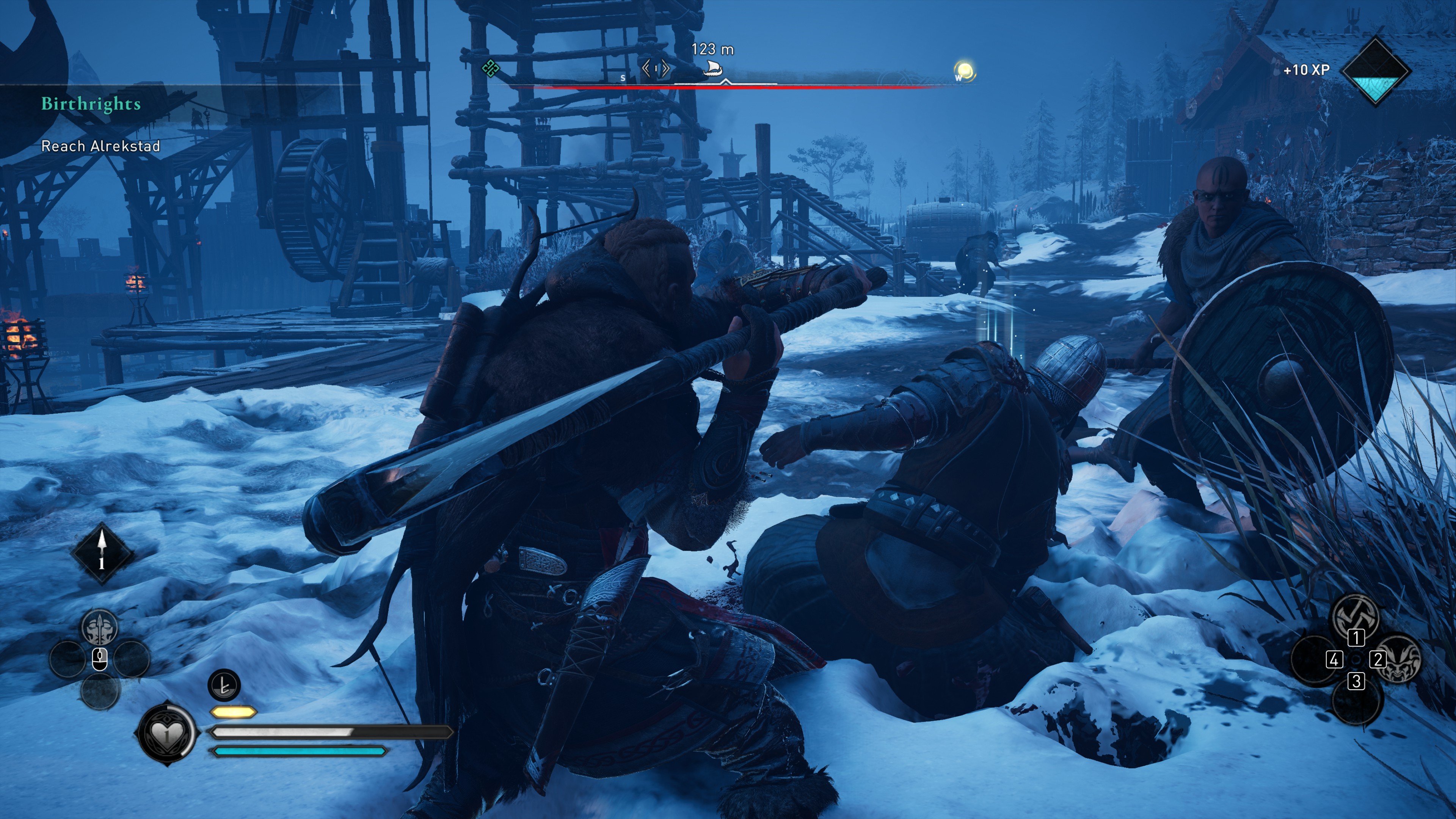
Valhalla’s settlement feature goes a long way to resolving this. No matter how far you venture into the wilds of Dark Age England, all roads ultimately lead back to Ravensthorpe. Some of this is mechanical. At the outset, your settlement is little more than a few tents surrounding a dilapidated longhouse, and to access its more useful features, you need to construct houses and key outbuildings like barracks, trading posts and hunting lodges.
Doing this, however, requires supplies and raw materials, which can only be acquired by raiding local monasteries. Raids are some of Valhalla’s most spectacular missions, with you and your longboat crew rushing the shoreline, before battling through the monastery’s Saxon Guards as you torch the surrounding buildings and pillage the site of its treasures.
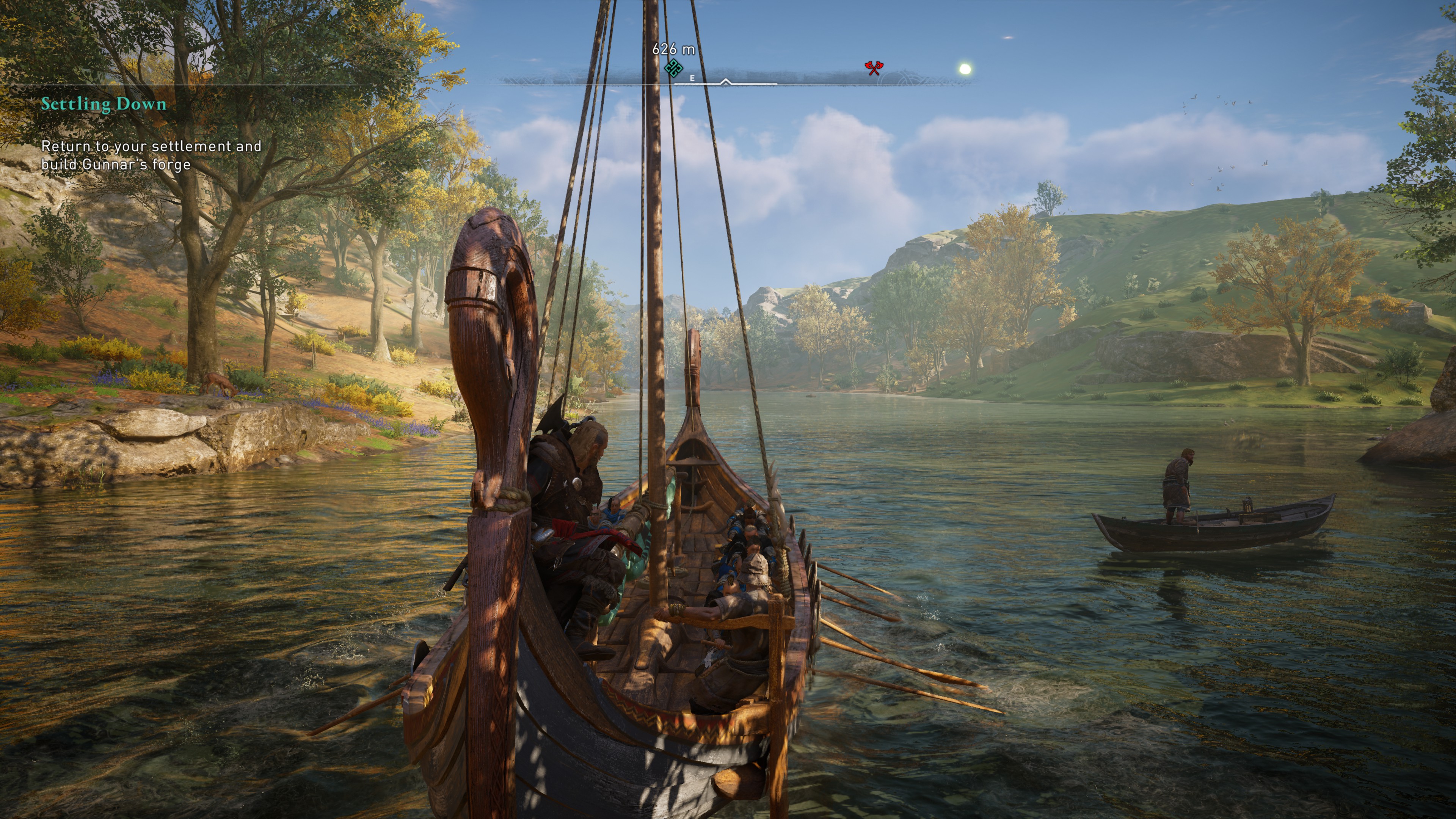
More importantly, the settlement is the springboard for all the game’s story. This centres around the Alliance Map, where Eivor plans his expeditions into each of the surrounding English Kingdoms as he seeks likeminded warriors to help him stake his claim on English land. Each county has its own story arc which, depending on Eivor’s decisions during that arc, will influence the outcome and how his settlement grows.
This lets Valhalla be both a grand tale and a more personal one. Rather than every character you meet being little more than a quest dispenser, the game’s many side-characters are more persistent and active in the story. You generally have a good idea of what everyone is up to, even when they’re not on screen. This makes the bigger events of the plot feel more impactful, and not isolated from one another.
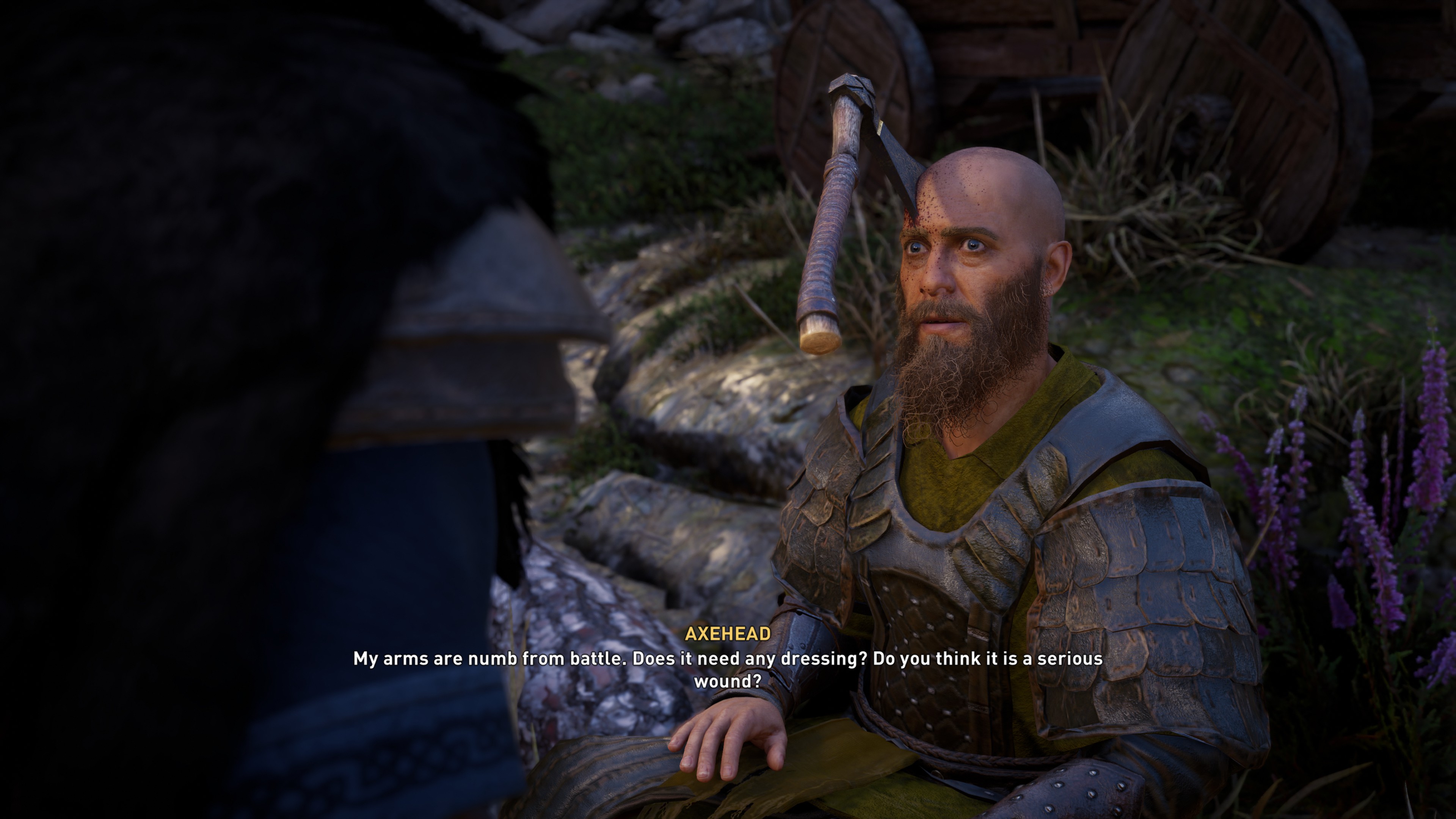
For example, an early arc focusing on Ledecestrescire sees you working with another clan of Danes as they seek to install a puppet King on the throne of Mercia. The clan is led by two brothers, Ubba and Ivarr, who have differing views on how to approach the conquest (Ubba favours diplomacy, while Ivarr prefers the more traditional Viking approach of murdering everyone). Though the quest finishes on what seems like a happy note, it’s clear the game isn’t done with this particular arc, nor how it foreshadows Eivor’s own potential relationship troubles with his brother Sigurd.
The deeper you delve into Valhalla, the more complex its story threads become, and the more it evolves. This is a theme that defines Valhalla over and above previous AssCreed games. It isn’t simply giving you more stuff, it develops ideas and systems over the course of the experience.
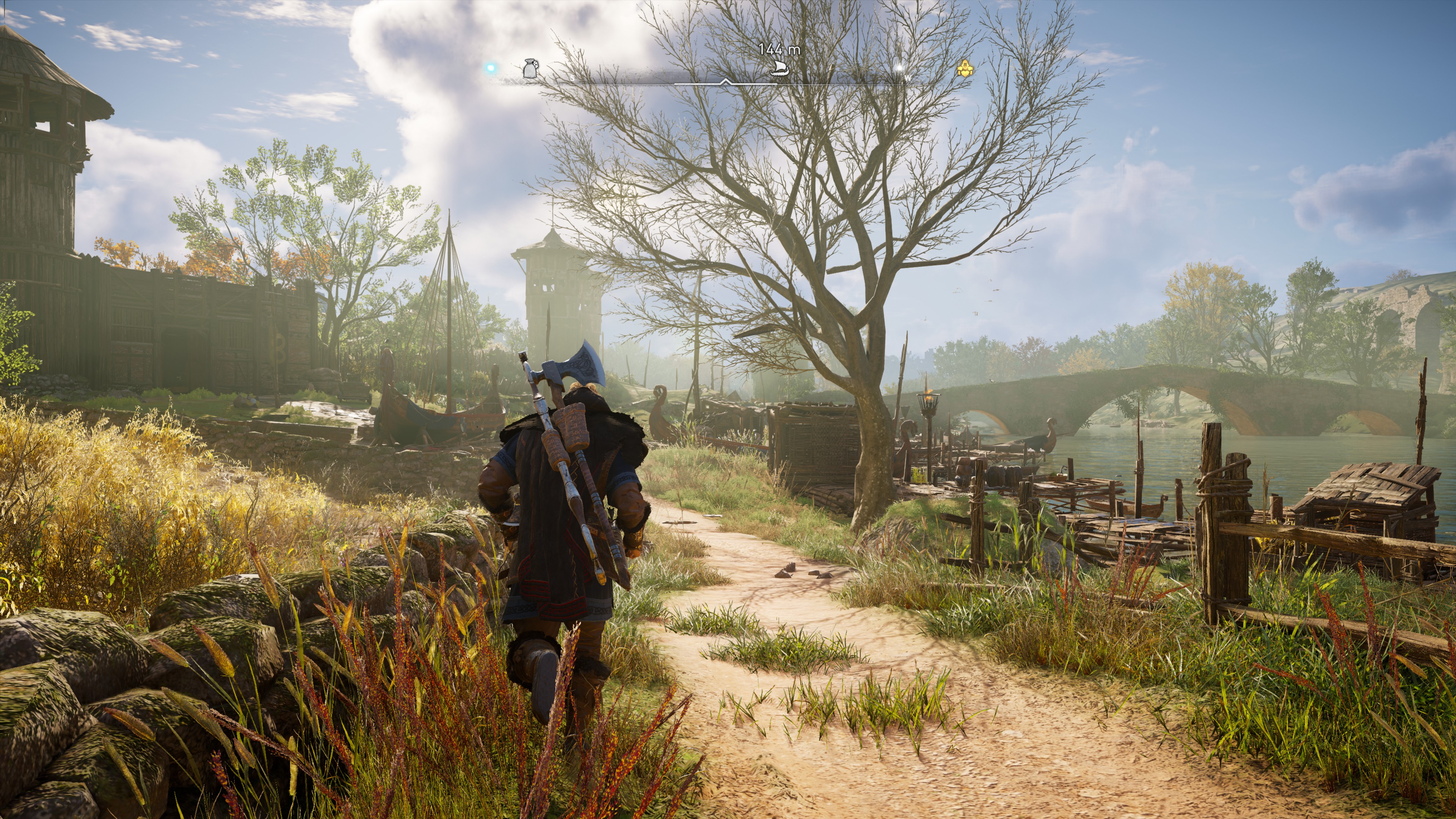
Combat is a particularly good example of this. As I said, at first, I really didn’t enjoy the combat. But then I switched from single handed axes to a two-handed Dane Axe, which has considerably more heft, literally tearing enemies off their feet and flinging them away like wet tissue paper. Valhalla couples this with a wide range of powerful abilities, such as ‘Rage of Helheim’ a Viking Rugby tackle that lets you pin and enemy to the ground and pound their face with your fists. I’m also a big fan of ‘Rush and Bash’. Valhalla’s version of Odyssey’s Spartan kick, it replaces that game’s mighty boot with a wild berserker charge.
Valhalla couples this with a truly enormous skills tree that offers even more powerful abilities at its more extreme edges. One of my favourites lets you tap ‘E’ to pick up any discarded weapon on the battlefield and cob it at a nearby enemy. It’s such a wonderfully ad-hoc little ability, letting you make use of weapons you wouldn’t normally touch. Oh, and there’s a skill that enables you to dual-wield two-handed weapons, which is ridiculous. Valhalla also challenges you with a broad variety of enemy types, some of whom interact with skills and abilities in interesting ways. Charging into a Goliath enemy, for example, won’t kill them outright, but will instead trigger a wrestling contest, which if you win it, is super gratifying.
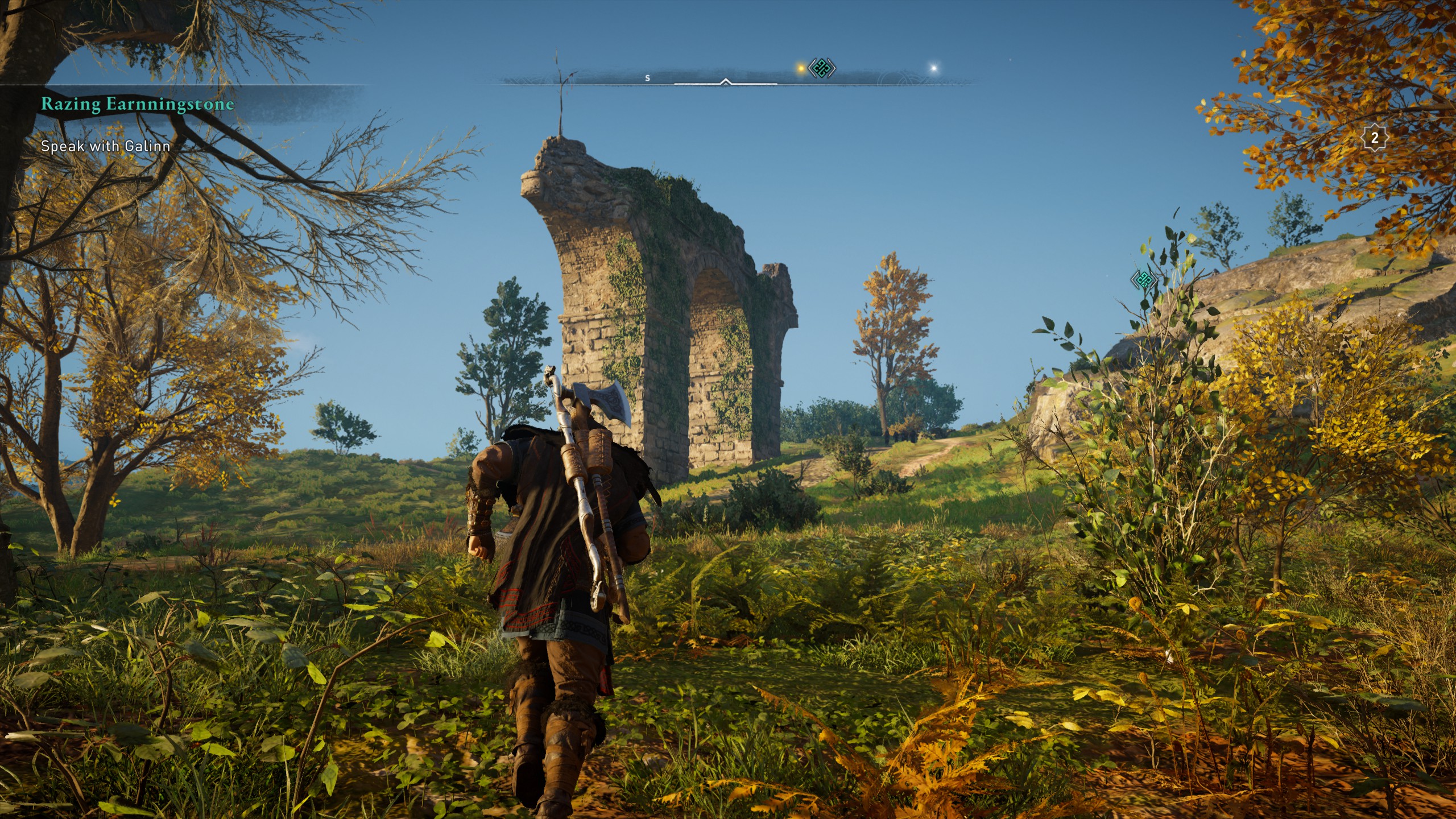
The melee combat may start off weedy, but by the end it’s so powerful that it ends up overwhelming the alternative methods of play. In a way this is a shame. The bow-and-arrow, for instance, is actually better designed than the core combat. Hearing an arrow thunk into a Saxon’s face, and watching them stagger backwards before toppling to the ground, is enormously satisfying. But it can be a bit fiddly to use in the middle of a fight, and so I often defaulted to regular melee combat simply because it was more efficient.
Moreover, in a cruel twist of Irony, Valhalla is the first Assassin’s Creed game where stealth basically works. You can sneak around camps to your heart’s content, whistling to distract guards before quietly murdering them in the bushes. And while there are level recommendations for the different areas, there’s no strict level-gating, which means regular guards can be instantly killed with assassinations. Special enemies can withstand a stabbing initially, but you can unlock an ability that gives you the opportunity to murder them outright.
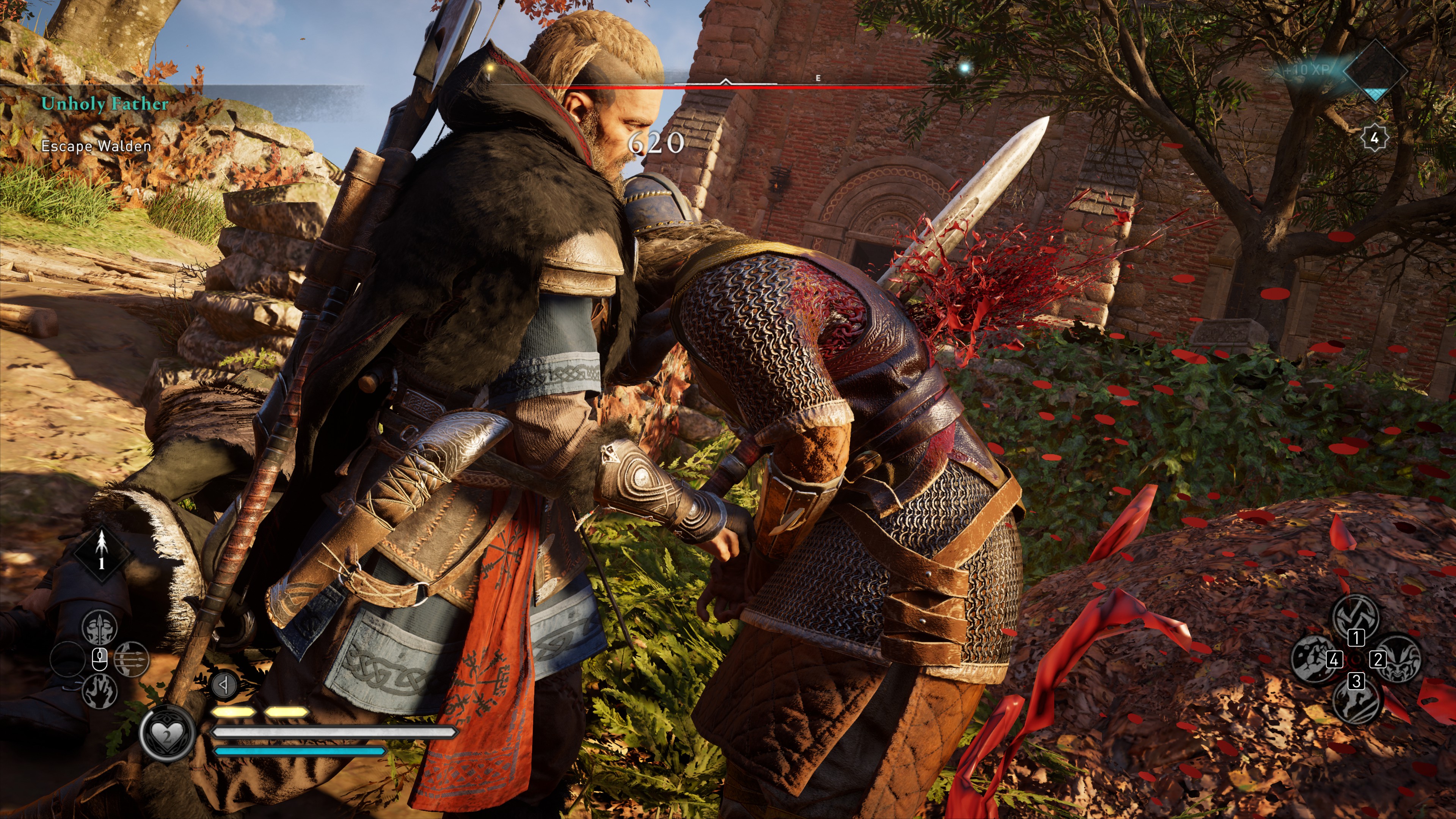
In other words, Assassin’s Creed has finally become a proper assassination game, just in time for it to finish evolving into something else entirely. Although stealth works, it’s still very easy to attract guard attention unless you’re properly hidden inside bushes. At this point, it’s simply easier to kill them all rather than mess about evading them.
Nonetheless, Valhalla is a more holistic experience than either Origins or Odyssey. It’s also more varied in terms of player action than that Odyssey and Origins. For example, I quickly began to bypass the smaller side-quests in Odyssey, because they all became samey very quickly. Valhalla, by comparison, has a much broader range of activities. The game’s silver ‘Mysteries’ for example, include various types of puzzle and a whole bunch of challenging boss fights, as well as more traditional side-quests, many of which are weird and some downright hilarious. One of my favourites a monk who challenges you to annoy him, which involves smashing all his stuff and then burning down his house. Not only is this funny, its ending was way darker and more surprising than I expected. They’re nowhere near as involved as the Witcher 3, but it was rare that I encountered one that didn’t feel rewarding in some way.
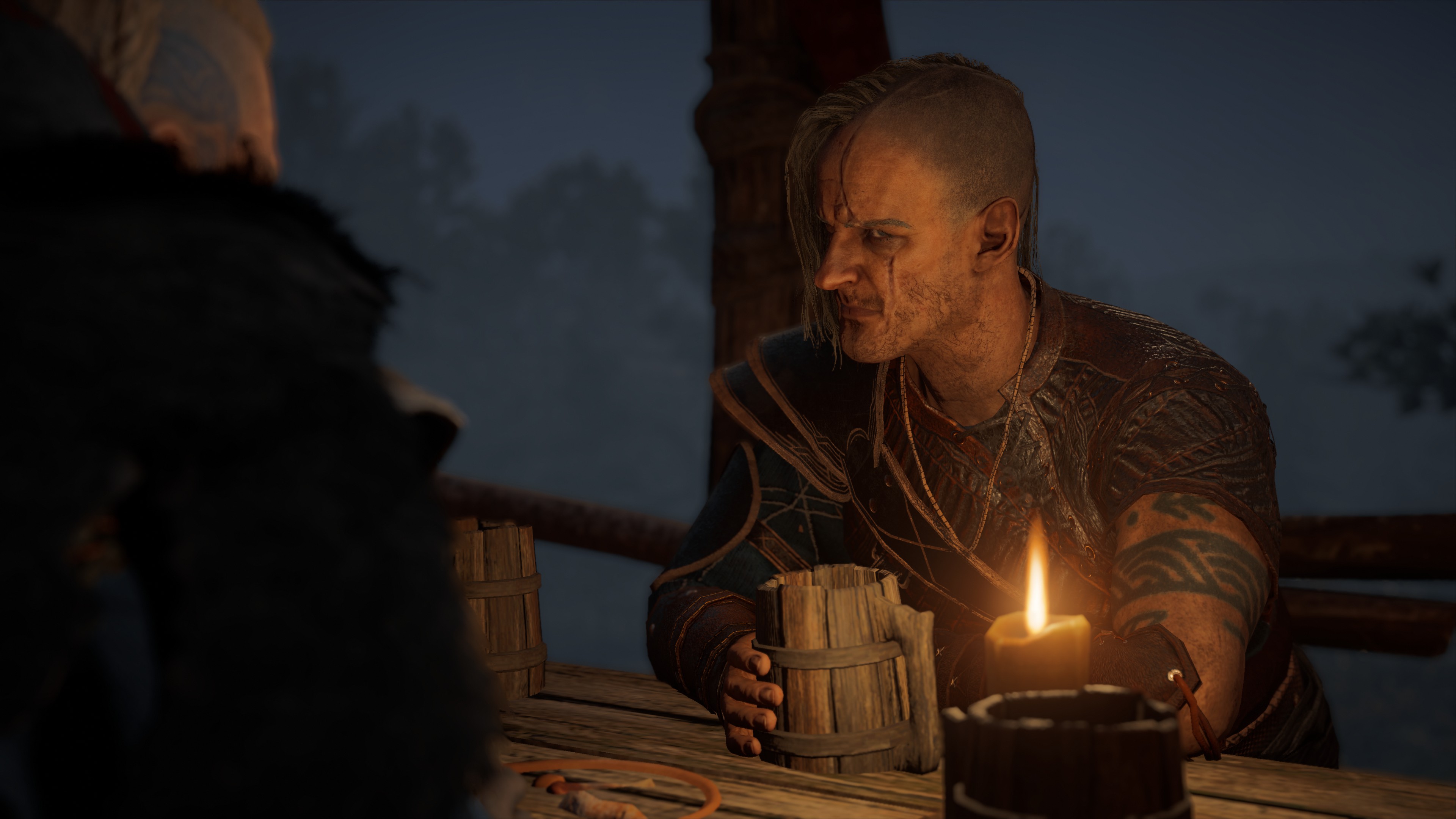
On top of Mysteries, there’s “Wealth” to retrieve, which includes weapons and armour alongside new abilities. Meanwhile, “Artefacts” range from ancient Roman trinkets to Nithing Curses that afflict sites of particularly horrendous violence. Not all of it is great – the Curses are ultimately less interesting than the appear. But where I mainly wanted to see what was around the corner in Odyssey, Valhalla had me consistently engaged at an interactive level as well as a visual one.
This is not to say that Valhalla is perfect, however. From a story perspective, while the narrative is much better and more involving than that of Odyssey, it still isn’t on the same level as, say, the Witcher 3. Part of this is simply that the writing and voice acting isn’t as good, with some of the more fringe voice-acting being particularly weak (there’s one NPC who seems to be doing an impression of Terry Jones in Monty Python’s Life of Brian). But it also comes down to a refusal to engage with the game’s harder themes dead on.
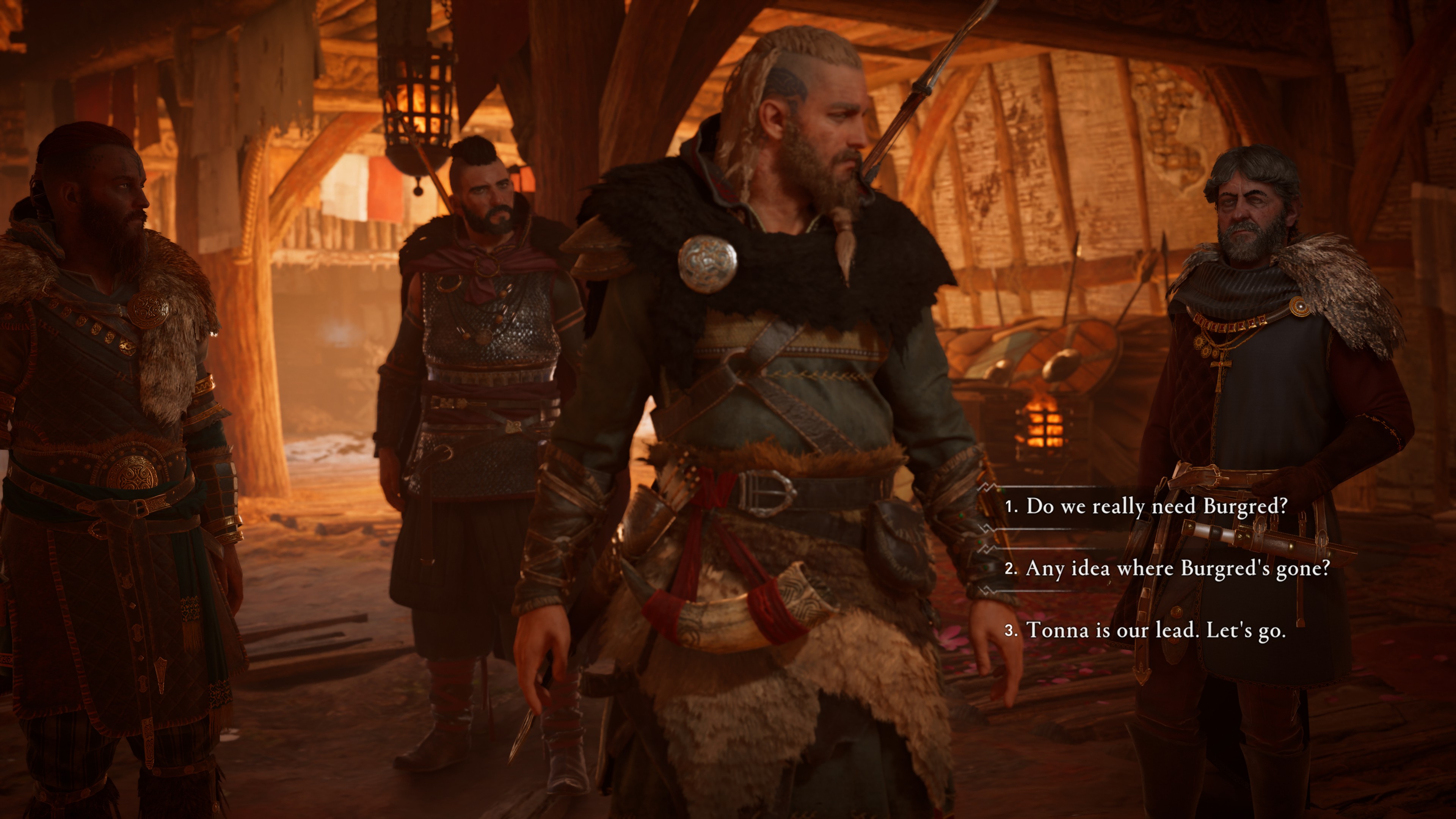
For example, while it’s great that Valhalla shows us the more cultural and societal side of Viking life, it does rather whitewash their well-earned reputation for being violent murderous bastards. During raids, for example, while you can burn churches and kill soldiers to your heart’s content, the game punishes you for murdering non-combats, such as peasants and monks. Not being funny, Valhalla, but if I was really a Viking, there wouldn’t be much left of anybody after a raid.
Meanwhile, some of the larger-scale missions can be anti-climactic. In many of the bigger battles, it’s perfectly possible to just run through all the fighting, a consequence of the game not being built to handle combat bigger than a skirmish. As is so often the case with Ubisoft, the studio seems more concerned with adding things than it does with fixing things. Valhalla isn’t short of bugs, for example. I didn’t encounter anything game breaking, but there were lots of little things like character models being trapped in the ground, as well as a technical issue whereby my framerate kept hitching horribly until I changed a Windows setting.
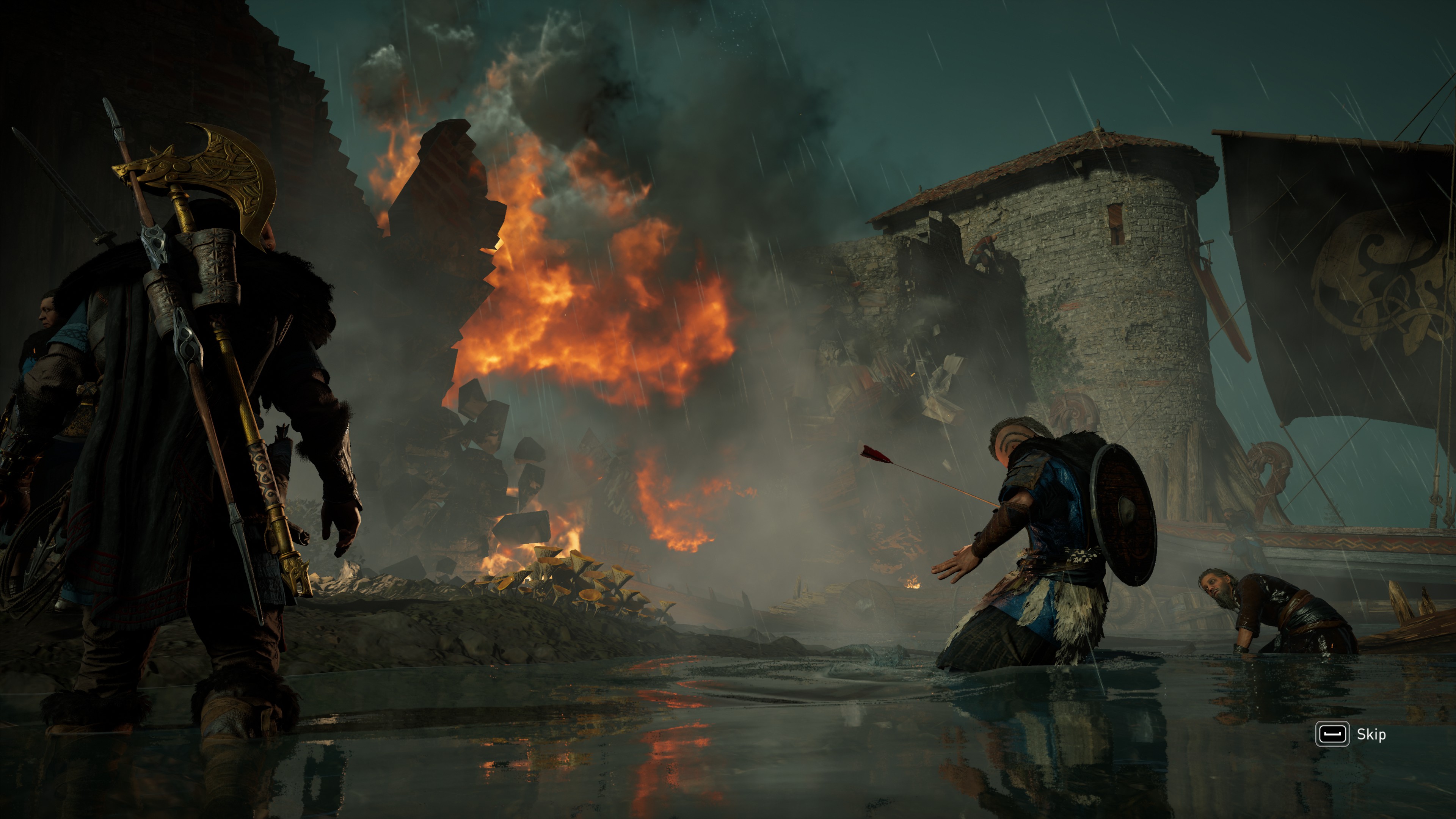
Still, despite a somewhat rough start, Valhalla soon develops into the best Assassin’s Creed game yet. The more I played it, the more I wanted to play it, to see how Eivor’s latest chapter in conquest would further develop the story, to learn what new ideas lay over the next gorgeous English horizon.
